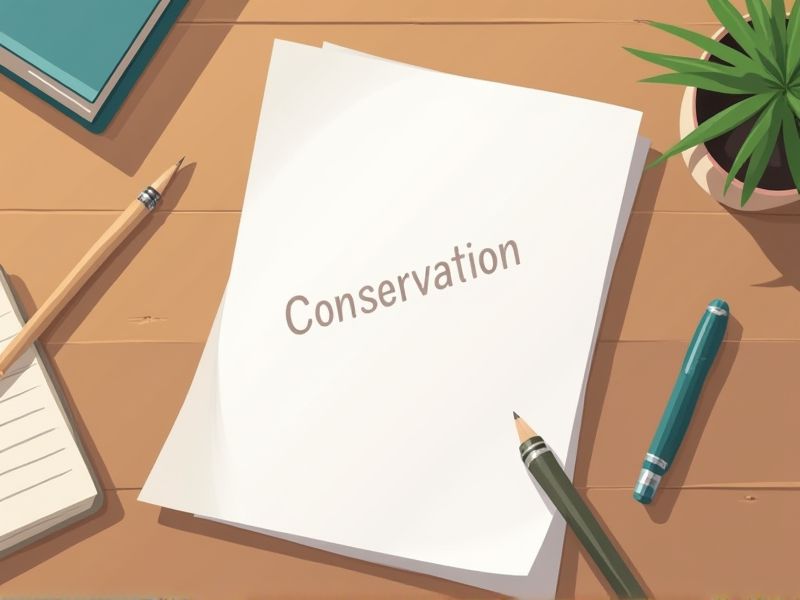
Conservation officers focus on protecting natural resources, which involves specialized skills and knowledge. The challenges of law enforcement in natural settings require certifications to ensure they can effectively manage wildlife and habitat issues. Complex situations, such as tracking poachers or handling endangered species, necessitate additional training and validated expertise. Here are some important certifications that a conservation officer might need.
Peace Officer Standards and Training (POST) Certification
Peace Officer Standards and Training (POST) Certification ensures that conservation officers have a comprehensive understanding of law enforcement principles, which is crucial for executing their duties effectively. Without this certification, officers might lack the standardized skills necessary for enforcing wildlife laws and responding to emergencies. The certification process involves rigorous training in areas such as self-defense, conflict resolution, and legal regulations, providing officers with the tools needed to handle diverse situations. Obtaining POST Certification enhances the credibility of conservation officers, fostering trust and cooperation within the communities they serve and protecting natural resources.
Conservation Law Enforcement Academy Certification
The Conservation Law Enforcement Academy Certification equips conservation officers with necessary skills in wildlife protection and environmental law compliance. Enhanced training prepares officers to effectively manage and safeguard natural resources against illegal activities like poaching. It ensures that officers are adept in both conflict resolution and community engagement, crucial for effective conservation efforts. Rigorous certification fosters trust and collaboration between officers and the communities they serve, improving conservation outcomes.
CPR and First Aid Certification
Conservation officers frequently operate in remote areas where medical assistance might not be immediately available, making CPR and First Aid certification crucial for responding to emergencies. Outdoor environments can present unpredictable hazards, increasing the likelihood of accidents that require immediate medical intervention. Interacting with the public is a regular part of a conservation officer's duties, and being trained in lifesaving techniques can ensure public safety during unexpected medical emergencies. CPR and First Aid knowledge enhances an officer's ability to provide comprehensive care to both colleagues and wildlife, reinforcing the effectiveness of conservation efforts.
Defensive Tactics Certification
Defensive Tactics Certification equips conservation officers with practical skills for safely handling confrontational situations with potential poachers or violators. This certification increases an officer's confidence in field operations, reducing hesitation during critical encounters. The training also minimates the risk of injury to both officers and suspects, promoting safer enforcement of wildlife laws. Certified officers maintain public trust by demonstrating professionalism and preparedness in high-pressure scenarios.
Firearms Proficiency Certification
Firearms Proficiency Certification is needed for Conservation Officers because it ensures they can respond effectively to potential threats in the field, such as wildlife dangers or illegal armed activities. Having the certification enhances their ability to safely resolve conflicts that might arise during patrols or investigations. Officers equipped with certified skills can better protect themselves, the public, and natural resources. The requirement fosters public trust in the officers' competence and preparedness.
Wildlife Management Certification
Wildlife Management Certification equips Conservation Officers with essential knowledge on habitat preservation, ensuring they make informed decisions. Certification enhances their understanding of species-specific needs, which is crucial in maintaining biodiversity. Trained officers can effectively identify and mitigate human-wildlife conflicts, preserving ecological balance. Continuous education through certification ensures officers remain updated on best practices and evolving conservation strategies.
Environmental Compliance Certification
Environmental Compliance Certification ensures that conservation officers operate within legal frameworks, maintaining accountability for their actions. Certification educates officers on best practices to minimize ecological impact, promoting sustainable management. It instills public trust by showing commitment to environmental standards and legal mandates. Certification helps verify that officers are trained to enforce regulations effectively, reducing the likelihood of legal penalties or environmental damage.
Hazardous Materials Awareness Certification
Hazardous Materials Awareness Certification equips conservation officers with the necessary knowledge to identify potential environmental threats posed by dangerous substances. This certification enhances their ability to respond effectively to incidents involving hazardous materials, minimizing environmental damage. With this training, officers can ensure compliance with safety regulations, reducing the risk of legal issues for their organizations. The certification also fosters collaboration with other emergency response teams, ensuring coordinated and efficient action during incidents.
Search and Rescue Certification
Search and Rescue Certification equips conservation officers with essential skills for locating and assisting individuals in wilderness areas. Proficient search and rescue capabilities enhance their ability to respond effectively to emergencies, reducing the risk of harm to lost or injured individuals. This certification ensures that officers can operate safely in diverse and challenging environments, which is crucial for maintaining public safety in conservation areas. Comprehensive training in search and rescue techniques strengthens overall mission readiness, enhancing the officer's capability for rapid, organized, and successful rescues.
Outdoor Survival and Emergency Response Certification
Conservation officers often work in remote environments where immediate medical or logistical support is not available, necessitating outdoor survival skills. Emergency response skills enable officers to manage unexpected situations, such as natural disasters or injured wildlife, effectively. With certification, officers gain confidence and competence, reducing risks to their safety and that of others. Certification also ensures adherence to protocols, improving consistency and professionalism in their conservation duties.
Summary
You're likely to observe a Conservation Officer demonstrate improved skills and knowledge, enhancing their ability to manage wildlife and natural resources effectively. Certification equips officers with advanced techniques and protocols, fostering better decision-making in various ecological scenarios. As they gain specialized training, officers can offer more reliable guidance in environmental conservation efforts. Your interaction with certified officers may lead to increased trust and collaboration in conservation initiatives.
